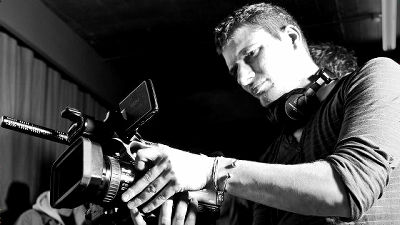OpenAI and Meta sued by three authors for copyright infringement

On July 7, 2023, three American authors sued OpenAI's ChatGPT and Meta's LLaMA for copyright infringement. The plaintiffs allege that they have not consented to their copyrighted books being used as training material for AI models from both companies.
Sarah Silverman is suing OpenAI and Meta for copyright infringement - The Verge

This time, OpenAI and Meta were sued by comedian and writer Sarah Silverman and writers Christopher Golden and Richard Cadley. The plaintiffs allege that ChatGPT and LLaMA were trained on datasets illegally distributed on the Internet.
Plaintiffs have submitted evidence that these text generation AIs have summarized their books as evidence that ChatGPT and LLaMA have infringed their copyrights. Specifically, Mr. Silverman's '
In the lawsuit against OpenAI, the plaintiffs allege that these works are the so-called 'shadows' such as the torrent tracker site 'Bibliotik', the illegally copied book search engine 'Library Genesis', and the pirated e-book database 'Z-Library'. Library (Shadow Library) ', pointing out that 'books are available in large quantities via torrent'.

Another lawsuit against Meta alleges that it was able to access copyrighted books from the dataset used to train LLaMA. Meta publishes details about LLaMA in a paper, citing training datasets as sources, one of which is 'ThePile'. EleutherAI, an AI researcher group that created ThePile, explained in the paper that ``ThePile was created from a copy of the content of Bibliotik's private tracker,'' and that the use of shadow libraries, including Bibliotik, is ``obviously unlawful,' plaintiffs said.
The three authors have sued OpenAI and Meta on six counts, including copyright infringement, negligence, and unjust enrichment, alleging that their books have been used in training materials without their consent, and have sought damages against both companies. and demanded a return of profits.
This isn't the first time a writer has sued a text-generating AI developer. On June 28, 2023, authors Mona Awad and Paul Tombray sued OpenAI for copyright infringement, claiming that their work was used for ChatGPT training without their consent. According to British news media The Guardian , this is the first case where OpenAI has been sued for ChatGPT's copyright violation.
A writer sues OpenAI for ``a pirated book was used to learn ChatGPT''-GIGAZINE

Dylan Tampapillai, an AI and copyright law researcher at the University of New South Wales, Australia, said, ``Plaintiffs must prove that OpenAI copied their work, thereby creating an economic existence. Yes, it is considered an act of infringement to copy a work to a database, but it is unlikely that this act alone will cause significant damage to the economic interests of the copyright owner.” I pointed out that it could end.
In addition to text generation AI, image generation AI Stable Diffusion and Midjourney have been filed a class action lawsuit in January 2023.
A class action lawsuit is filed against image generation AI ``Stable Diffusion'' and ``Midjourney''-GIGAZINE

Related Posts:
in Software, Posted by log1l_ks






